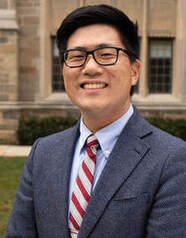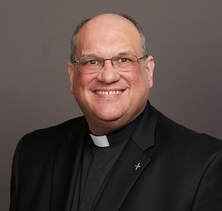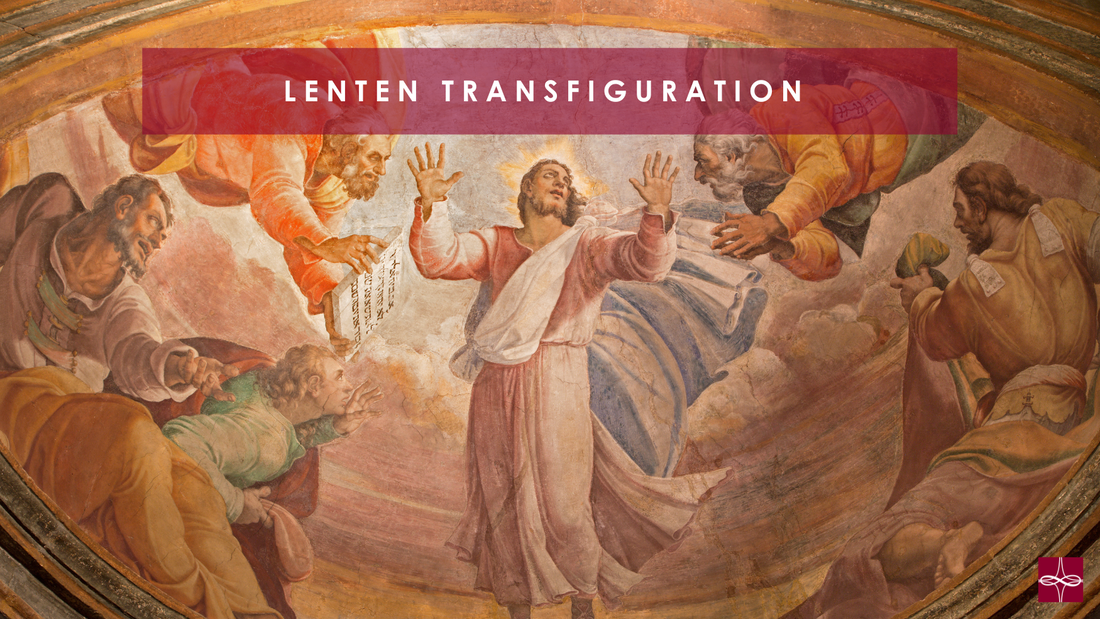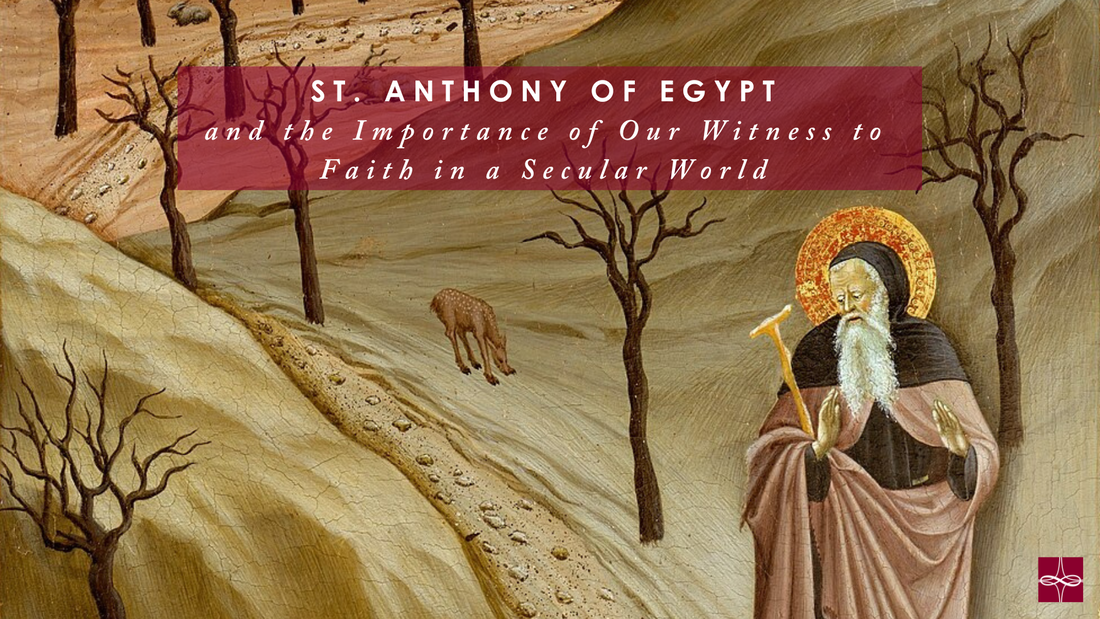|
I’m not much of a poetry person. I did what I could to avoid it in middle and high school, as well as college. But there is one poem that I like—in fact, that I love. It goes like this: “Hope” is the thing with feathers - That perches in the soul - And sings the tune without the words - And never stops - at all - And sweetest - in the Gale - is heard - And sore must be the storm - That could abash the little Bird That kept so many warm - I’ve heard it in the chillest land - And on the strangest Sea - Yet - never - in Extremity, It asked a crumb - of me. That is “Hope is the Thing with Feathers” by Emily Dickenson. I always liked the poem, the way it rhymes and the way it rolls off the tongue. It became even more important to me when my father became ill. I clung to this poem because it reminded me that hope is always with us; that even in the greatest storm, hope remains and remains without ceasing. As Christians, we cling to hope. This season of Lent which we find ourselves in right now is a period that prepares and leads us to that ultimate instance of hope in the Christian life: the Resurrection. Much like the hope that Dickenson writes of in her poem, the hope of the Resurrection remains with us at all times. It never stops, it remains with us in our souls, and it is, if I may create a word, “unabashable.” The thing is, it can be hard to see this hope in our lives, regardless of its unceasing presence. Pope Francis dedicates two paragraphs of Fratelli Tutti to the virtue of hope. He writes: Hope speaks to us of a thirst, an aspiration, a longing for a life of fulfillment, a desire to achieve great things, things that fill our heart and lift our spirit to lofty realities like truth, goodness and beauty, justice and love… Hope is bold; it can look beyond personal convenience, the petty securities and compensations which limit our horizon, and it can open us up to grand ideals that make life more beautiful and worthwhile” (Fratelli Tutti, 55). Hope transcends our ups and our downs, our individual trials and tribulations, not because they are insignificant, but because the Resurrection, in the end, is greater than every one of those. The hope of the Resurrection doesn’t minimize our trials, or even our personal convenience and petty securities, but it is the light which illuminates the darkness and allows us to move past them on our journey with Christ. The hope of the Resurrection, the hope of Christ perches in our soul and it sings the tune of Alleluia (pardon my use during Lent) without ceasing. This hope, much like the little bird that Dickenson describes, is in fact sweetest in the gale, in the storm, because we are called to recall that Jesus Christ will provide for us in ways that no other person or thing ever can. In the midst of Lent, much like through all of our sufferings, hope can be heard as a melodious tune above the groans of those trials which we face. May we look to hope, the thing with feathers, the Resurrection, this Lent and always. For more resources to accompany you during your Lenten journey, please click here. **This blog was originally published on March 16, 2021.**
0 Comments
 Taking up our cross and following Christ is not only for the Lenten season. It is the everyday life of a missionary disciple of Christ. We follow Christ and are sent by him into the world. The weight of our cross may be burdensome, but we are not alone. We are together with the community of faith, other followers of Christ who accompany us in prayerful solidarity. This is missionary discipleship. This is apostleship. We are sent by Christ to others, even while carrying our cross, accompanying them into his infinite love and mercy. Over the last weekend, members of the Catholic Apostolate Center team focused on missionary discipleship and accompaniment during presentations at the Archdiocese of Los Angeles Religious Education Congress. It is one of the largest Catholic gatherings in the United States with around 20,000 attendees of various ages and cultures, deeply committed to their Catholic faith and desiring to witness Christ in their lives. While there, we met collaborators and friends of the Center, and came to know new ones. It was a beautiful and uplifting experience. As you continue on your Lenten journey, may it be one of taking up your cross, following Christ, and going forth on mission for him! May the Charity of Christ urge us on! In God, the Infinite Love, Fr. Frank “Peter and his companions had been overcome by sleep, but becoming fully awake, they saw his glory and the two men standing with him.” -Luke 9:32 Twice in the Gospels we hear of the trio of disciples sleeping at pivotal moments in Christ’s life and ministry: at the Transfiguration – in this Sunday’s Gospel – and in the Garden of Gethsemane during Christ’s Agony. Both times, Christ is in deep prayer. And both times, Peter, James, and John are “overcome by sleep.” I get it. The group of men have just hiked up a mountain. It would have been normal to rest after such a grueling endeavor. Similarly, in the Garden, Jesus took the three disciples to pray after the Feast of the Passover—a long, filling meal complete with wine. I think of all the times I’ve napped after a holiday meal and sympathize with Peter, James, and John. In these scenes, they are so human. They become tired and rest their eyes. And yet, because of their physical tiredness, they miss out on God’s glory. In this week’s Gospel for the Second Sunday of Lent, Jesus is transfigured and his three beloved disciples are offered a glimpse of the glory to come—not only the glory of the Resurrected Christ, but the glory that awaits all men and women who allow themselves to be transformed by his grace. This Lent, I find myself asking, “Am I asleep with his disciples? What’s causing me to shut my eyes to God’s glory?” These questions are what have guided my Lenten journey as I discern how to grow in holiness this season. Each year, the Church in her wisdom asks us to reflect on what is making us spiritually sluggish and helps us prepare for Easter through prayer, fasting, and almsgiving. By ramping up in these three Lenten tenets, we can grow in our ability to see God’s will and the Holy Spirit at work in our lives. Had the Apostles been awake throughout the entirety of Christ’s Transfiguration, they would have basked longer in this glory—fear and confusion would not have gripped them. Lent calls us to wake up, to be alert, not only for the Easter celebration, but for God’s invitation to greater holiness throughout our lives. Pope Francis highlights Lent as the continuation of the “journey of conversion.” This journey is a lifelong one. And yet, seasons such as Lent, which focus on an even greater attention to prayer, fasting, and almsgiving, often spur us deeper and further on this journey towards Christ. As Pope Francis encouraged in his 2019 Lenten message: Let us not allow this season of grace to pass in vain! Let us ask God to help us set out on a path of true conversion. Let us leave behind our selfishness and self-absorption, and turn to Jesus’ Pasch. Let us stand beside our brothers and sisters in need, sharing our spiritual and material goods with them. In this way, by concretely welcoming Christ’s victory over sin and death into our lives, we will also radiate its transforming power to all of creation. The goal of Lent is not only Easter, but Christ Himself. This Lent, may our participation in prayer, fasting, and almsgiving help us shake off the drowsiness that shuts our eyes to God’s glory. For more resources to accompany you throughout your Lenten journey, please click here. Questions for Reflection: Am you asleep with Christ's disciples? What’s causing you to shut your eyes to God’s glory?” **This blog was originally published on March 12, 2019.** “Jesus, let there be more of you and less of me.” This is the short prayer I was once encouraged to pray as a penance by a wise, older priest. As we find ourselves at the start of Lent, these words once again come to mind, and I would like to offer them for your contemplation. The Church offers the season of Lent as an opportunity to prepare Her children well for Christ’s resurrection–both at the celebration of Easter (March 31 this year) and at His Second Coming. These preparations take the form of prayer, fasting, and almsgiving; the spiritual, penitential, and charitable practices we take up and the worldly things we put down. For forty days we walk into the desert, just as Jesus did, to humbly open ourselves to temptations and more fully offer our lives to the Lord. So what does that prayer–letting there be more of Jesus and less of me–have to do with Lent? Well…everything. In the first reading at Mass on Ash Wednesday, the prophet Joel extols us: “Rend your hearts, not your garments, and return to the LORD, your God” with your whole hearts (Joel 2:12). The Lord does not want to see what we can do of our own strength or will during this season; He wants us to see what He can do through us and the transformation He can work within us. Lent certainly calls for a degree of testing the limits of our comfort zones. More than this, it is an invitation to leave behind our will and consider the offerings and changes that will help us become more like Christ. As you reflect on your Lenten practices, consider asking yourself: “What can I offer to Jesus? How can I make more room for Him in my life? What can I let go of that will help me on this journey?” Approaching Lent in this way necessitates an act of surrender. It requires us to focus less on the material outcomes and more on the spiritual. This might mean to not give up ice cream like you do every Lent and instead, or additionally, prayerfully consider what areas of your life you have been keeping the Lord out of. St. John Henry Newman speaks to this in a sermon for the First Sunday of Lent: “...fasting is only one branch of a large and momentous duty, the subdual of ourselves to Christ. We must surrender to Him all we have, all we are. We must keep nothing back.” This, admittedly, is a challenging invitation, but remember that we are not doing Lent on our own. We are doing it with Jesus. This act of surrender necessitates reliance. And this reliance requires humility; an admission of our own weakness and powerlessness compared to Christ’s great strength. When you want to snooze your alarm and eschew the morning prayer time you’ve committed to, offer that to the Lord. When you are tempted to join in the office gossip, ask for Jesus’ strength. Ordinary as these offerings may be, that does not mean they are easy. If we have chosen to subdue ourselves for Christ’s sake, we can trust that He will provide the grace and strength we lack. As Catherine Doherty writes in Season of Mercy, “Mortification and penance are a passionate response of a man to a Passionate Lover who is God.” In humbly striving to more fully do the will of the Father, we naturally make more room for Jesus. As you surrender yourself to Him this Lent, also rely on Him. He wants us, and the attachments that bind us, to shrink away only so that His mercy and love can reign more completely. “Jesus, let there be more of you and less of me.” 2/8/2024 St. Anthony of Egypt and the Importance of Our Witness to Faith in a Secular WorldRead Now"The devil is afraid of us when we pray and make sacrifices. He is also afraid when we are humble and good. He is especially afraid when we love Jesus very much. He runs away when we make the Sign of the Cross." -St. Anthony of Egypt When St. Anthony of Egypt first ventured into the desert to become a hermit and devote his life entirely to God, he did not think that he would start the first monastic community–a tradition that would grow to be one of the life veins of the Church to this day. But St. Anthony inspired hundreds of men to follow him into the desert, living a life of simplicity and complete dependence on God. While at first this might seem ironic, that a man desiring to live alone would instead have hundreds of men following him and desiring to live in community with him, this story is seen time and time again throughout the lives of the saints. St. Anthony, St. Francis, St. Dominic, St. Clare, St. Teresa: each of these saints moved in a way that was completely contrary to the world when God called them to do so, and through their action inspired thousands of Christians to follow them and live lives of radical faith. We can often fall into the belief that our lives as ‘normal’ Catholics are not going to have an impact on the lives of others in any significant way, but as we see through the life of St. Anthony, every decision we make impacts and influences those around us. The men who followed St. Anthony into the desert did not do so because he was incredibly charismatic, or publicly performing great miracles, or telling them to follow him or they would go to hell. They followed because they saw that St. Anthony was joyfully living his life in a radically different way and they wanted to know what could possibly be going on so that their lives could be fulfilled like St. Anthony’s was. When we have a moment of conversion and the Lord calls us to be living saints, we are called in some way to radically change how we live our lives, no matter how big or small that change is. When we step into the change and choose to follow the Lord, we begin living as missionary disciples, our way of life witnessing to the reality which we live for. In the example of these saints, we see just how important it is that we live out these changes in a public way–that we live our lives in a way in which people can meet us and know that we are followers of Christ. Despite how small or big we may be in the mystical body, our unique charism matters and was created to help bring others into the fullness of the Christian life. When we look at the way we live our lives, what stands out as being unique to life as a missionary disciple? When we interact with a cashier at a store, do they experience an encounter with the Living God and the joy that comes with knowing Him? Are we willing to publicly live out our faith as an invitation for others to come and follow Christ, to have conversations with people about Jesus and invite them into the hope that we know? Do we stand for our morals and beliefs or do we allow others to conform our beliefs to this world? These are hard questions to ask ourselves, but we must take the time in prayer to reflect on whether the way we live brings others to follow the Christian faith, because others will follow our example. Thankfully as we see in the quote by St. Anthony at the beginning, the life of a Christian living for heaven doesn't have to be complicated, but is rather one of simple love for God and neighbor lived out through prayer, sacrifice, and faithfulness. Let us take the example of St. Anthony and live our lives in a simple, faithful way that shows those who encounter us that we are living for Christ, and that if they follow Christ they will find the same hope, peace, joy, and love that we witness to in the ways we live out our faith everyday. **This image is from: https://en.wikipedia.org/wiki/Saint_Anthony_Abbot_Tempted_by_a_Heap_of_Gold**
|
Details
Archives
July 2024
Categories
All
|
About |
Media |
© COPYRIGHT 2024 | ALL RIGHTS RESERVED










 RSS Feed
RSS Feed